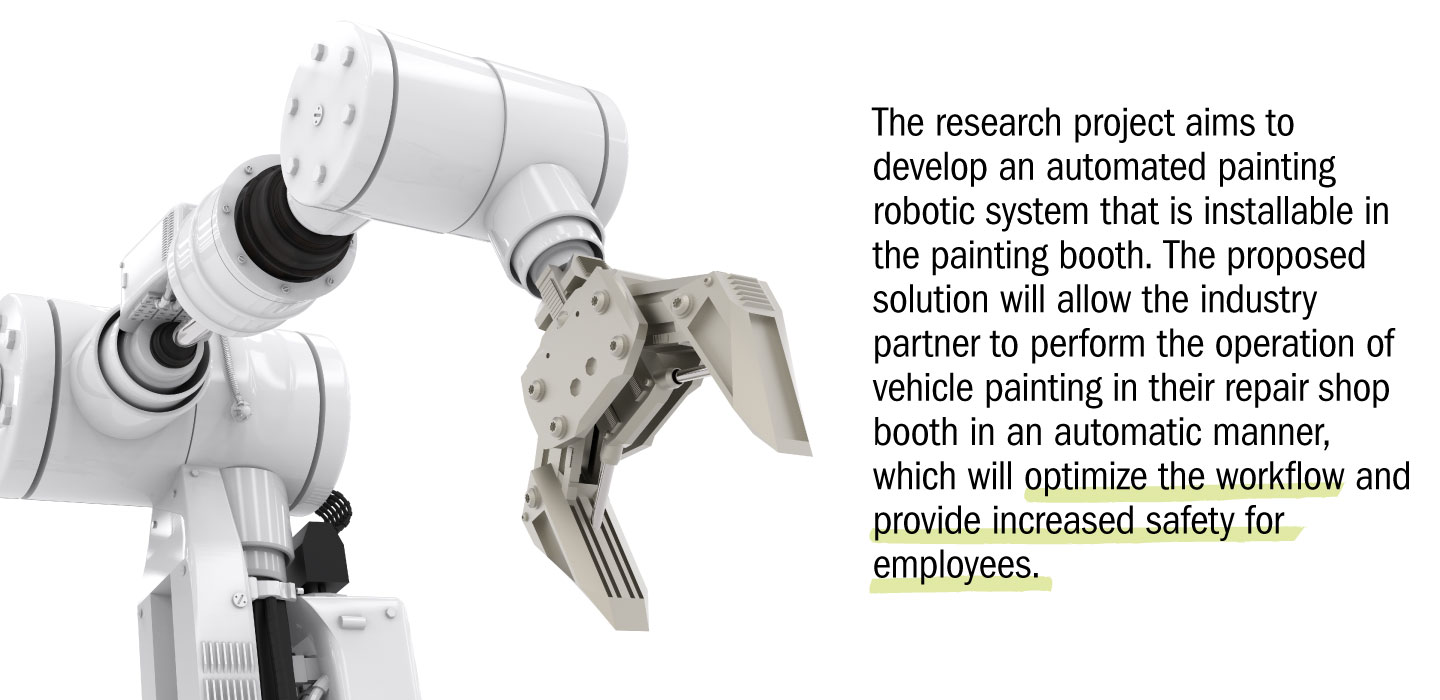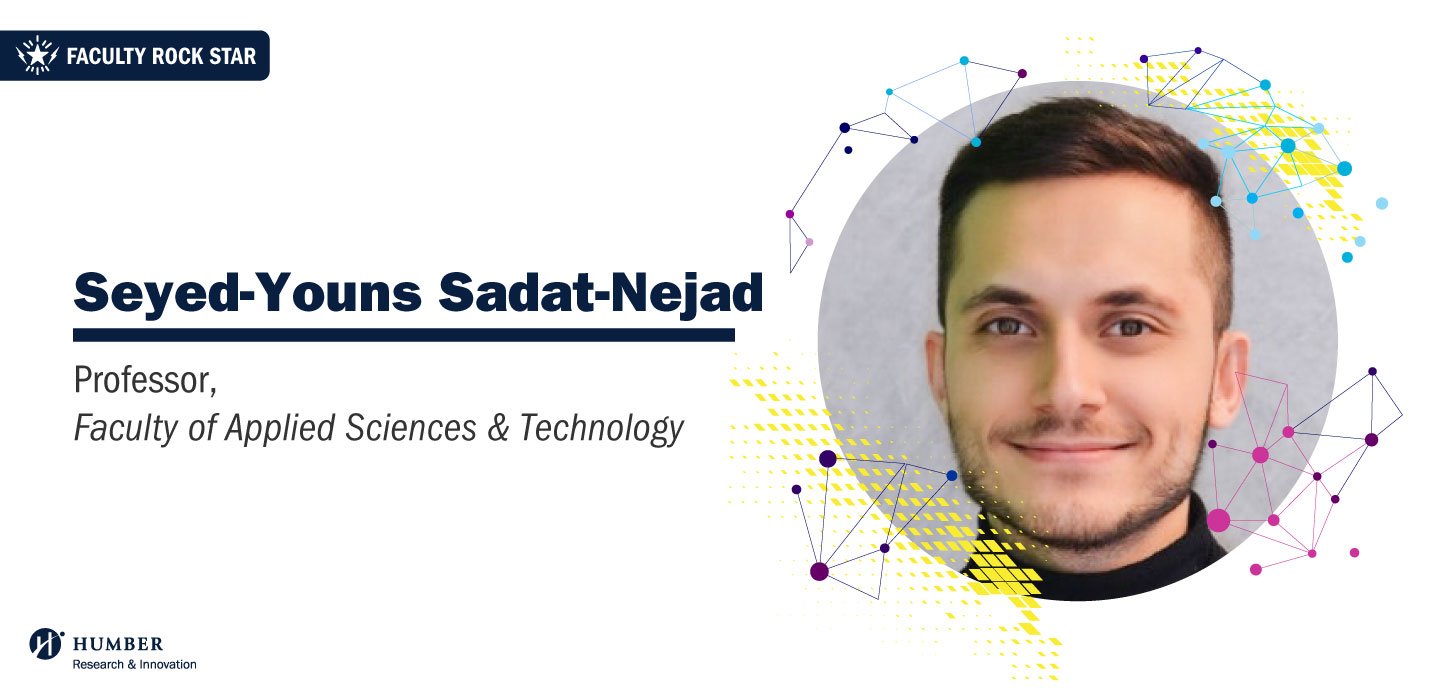As a leading research college in Canada, Humber College is home to a multitude of faculty members and researchers who continually strive to solve problems in the larger community through innovative ways while also educating and inspiring the next generation of students, scholars, and researchers. Seyed-Youns (Younes) Sadat-Nejad, professor in the Faculty of Applied Sciences & Technology, is one such valued member of the Humber community.
Background and expertise
Younes's journey with Humber began in 2019 when he joined as a professor in the Electronics Engineering program. Younes teaches the Element of a Product Design course, which provides first-year engineering students with the opportunity to develop an electronic-based prototype using various tools such as programming and 3D models.
Younes obtained his bachelor's degree in Biomedical Engineering and master's degree in Electrical Engineering from Ryerson University. During his time as a master's student at Ryerson, Younes co-founded Veebar Tech, a start-up company that develops smart home monitoring solutions for seniors with hearing loss and dementia. A solution developed by Veebar Tech was selected in 2020 for the Norman Esch Engineering Innovation and Entrepreneurship Award by Ryerson University.
Younes shared with us that the knowledge he acquired through developing technology solutions at Veebar Tech has helped him to sharpen his research and technical skills. Reflecting on the benefits of conducting research, Younes states:
"The most valued benefit I received from participating in research is learning to apply critical thinking and adopting a systematic approach when looking at any challenge/problem."—Younes Sadat-Nejad
Current research project
As Principal Investigator, Younes has recently received the Natural Sciences and Engineering Research Council of Canada (NSERC) grant ($25K) for his research project Robotic Painting Arm Development along with Co-Investigator Dr. Mehrdad Iravani-Tabrizipour, professor in the Faculty of Applied Sciences & Technology at Humber.
As part of the project, Younes and Dr. Mehrdad are collaborating with industry partner Mechatronic Diagnostics, a for-profit automotive diagnostic and repair centre, to develop a robotic painting system that will automatically operate vehicle painting. Mechatronic Diagnostics is challenged in finding expert painters and reducing the health hazards for its existing painters. The research project aims to develop an automated painting robotic system that is installable in the painting booth. The proposed solution will allow the industry partner to perform the operation of vehicle painting in their repair shop booth in an automatic manner, which will optimize the workflow and provide increased safety for employees.
We asked Younes about his experience with the Office of Research and Innovation (ORI) throughout the NSERC Engage grant process, and here is what he shared with us:
"My experience with Humber's ORI was amazing. The team was encouraging and helpful. They were all very supportive during the grant writing process. It went smoother than I anticipated." —Younes Sadat-Nejad

Why research?
In addition to his teaching responsibilities and the research project, Younes is also a third-year PhD student at the University of Toronto, where he is conducting research focused on using Graph Neural Networks (GNN) to cluster brain data. We probed, "Why research?" Younes explains that he is extremely motivated to participate in research because it is always oriented towards the future. He shares that he is fascinated by the many opportunities research presents to explore new horizons of knowledge and discovery. When asked to define research in his own words, Younes says:
"Research is working on topics with the objective of moving the boundaries of science." —Younes Sadat-Nejad
Get to know Younes a little more. Here are five things to know:
- Favourite book: Linchpin: Are You Indispensable? by Seth Godin
- When not at work: "I work out, and I spend time with family and friends."
- The most frequently used social media platform: LinkedIn
- Secret talent: Cooking
- Coffee or tea: Coffee

We acknowledge the support of the Natural Sciences and Engineering Research Council of Canada (NSERC). Nous remercions le Conseil de recherches en sciences naturelles et en génie du Canada (CRSNG) de son soutien.
